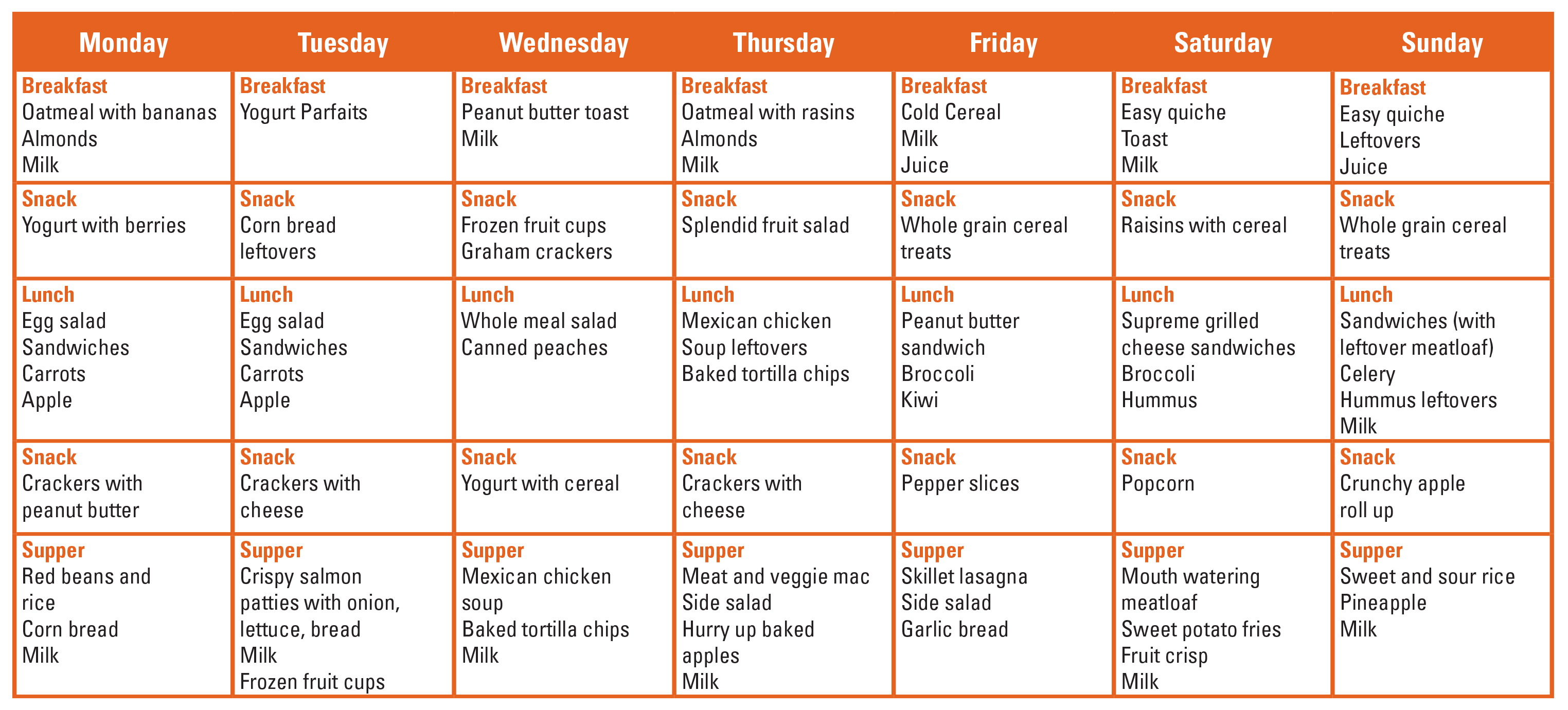 Reduce food waste and save money by planning meals in advance
Reduce food waste and save money by planning meals in advance
Have you ever thrown out leftovers, milk, or vegetables because you didn't eat them in time? Food waste - or food that is grown but not eaten - is a big problem for families and for the environment.
One-third of the world's food is uneaten, and wasted food is one of the biggest ways that people contribute to climate change. Each year, food waste causes 8% of global greenhouse gas emissions. Climate change describes a change in the average conditions — such as temperature and rainfall — over a long period of time. Changes in global temperatures are impacting people and the planet, causing rising sea levels and flooding, more frequent and powerful extreme weather events like hurricanes and snowstorms, droughts and heatwaves, and other dangerous conditions. Climate change will dramatically change the way humans live on this planet and have major effects on our communities, health, food, and more.
American families spend a lot of money on food waste. In fact, the average American family could save $370 per person every year by reducing their food waste - that means buying less and planning more. Meal planning - or deciding in advance what to eat for your meals - can reduce food waste, save money, and improve your health.
Can you work with your family to plan your meals for 1-2 weeks?
1. Write out your meal plan
Start with a few meals that you and your family are most excited about. Then, think about what leftover ingredients you might have from those meals. What meal could you plan on another weekday to use up those ingredients? For example, if you plan to eat tacos on Tuesday, can you use the leftover beans and cheese to make chili on Thursday?
With help from your family, write out a meal plan for the next 14 days. Make sure to leave space for leftovers! You may want to share the meal plan somewhere central so everyone can see it, like on the fridge.
For an extra challenge, try to incorporate a vegetarian diet into specific days. Learn more about the environmental benefits of eating vegetarian here.
2. Make a shopping list
Now that you have your meal plan, make a shopping list. Make sure you look at your recipes and get the correct quantity. If possible, consider buying from a local farm, farmers market, or farm store whenever possible. Learn more about the benefits of local produce here.
3. Reflect on the impact
After a week or two of meal-planning, reflect with your family. Were you effective at reducing waste? Was this a helpful practice for your family? Did you save money? Do you want to continue this practice?
4. Learn more
For more tips and information on how to reduce food waste and start meal planning, click here.
Take a photo of your meal plan and share it on social media. Make sure to tag @peancorg and #PEAYoungLeaders to be entered into the weekly Young Eco Leaders Raffle.
Click here to return to the list of all Young Eco Leaders activities